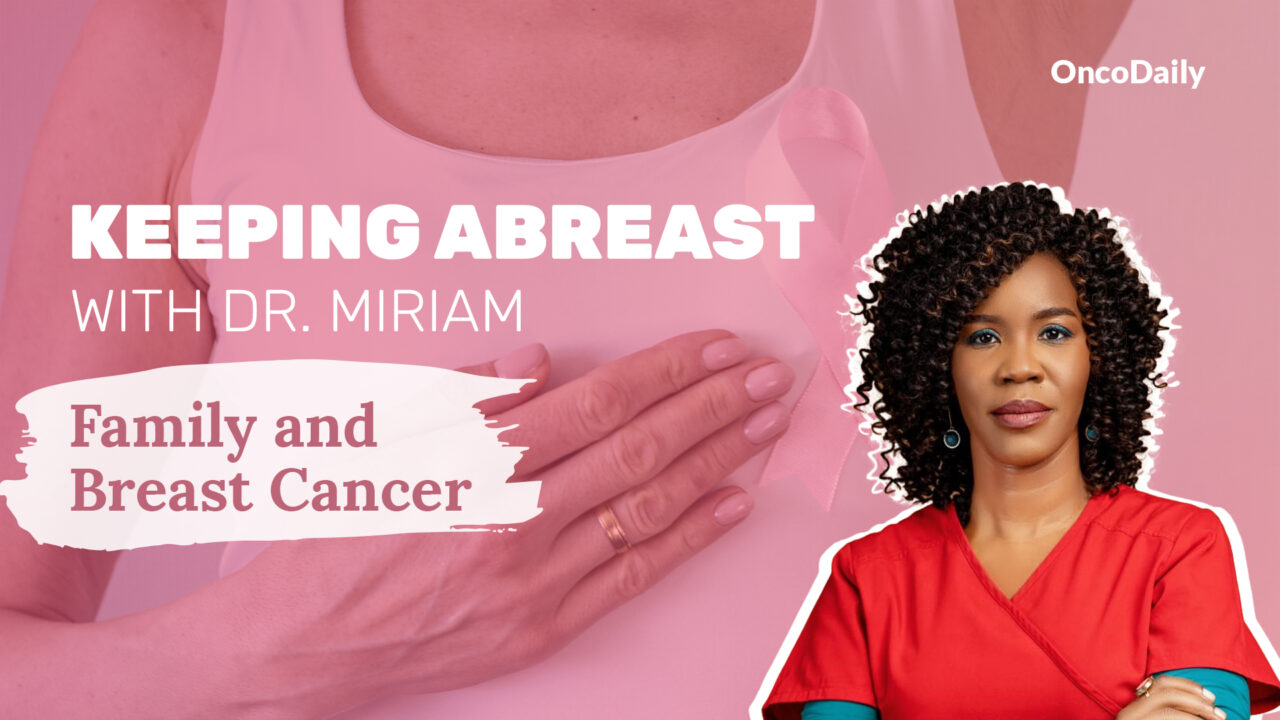
Miriam Mutebi: Let’s chat about family and breast cancer
Miriam Mutebi, Breast Surgical Oncologist at the Aga Khan University Hospital, posted on LinkedIn:
“Today, let’s chat about family and breast cancer.
Speaking of family, do you remember when Angelina Jolie made headlines for popularizing genetic testing?
Thanks to her, many people worldwide first heard about BRCA genes; some even coined the term ‘The Angelina Jolie Effect.’ She underwent a double mastectomy and had her ovaries removed after discovering she carried a BRCA1 gene mutation.
Her bold move had people everywhere digging into their family history, wondering, ‘What’s my genetic connection to breast cancer?’
And let’s be honest—just like you can’t divorce that pesky relative, you can’t exactly divorce your DNA!
What’s my point?
If you have a family history of breast cancer, it’s normal to wonder if you’re next in line. The truth is that genetics can play a significant role in your risk. Mutations in certain genes, particularly BRCA1 and BRCA2, can elevate your chances of developing breast cancer.
Here’s something that might surprise you though: only 5–10% of breast cancers are actually genetic. That means other factors like lifestyle, environment, and age influence most cases. So even if your family tree has a clean bill of breast health, staying vigilant is still crucial.
But what’s BRCA?
BRCA is an abbreviation for ‘BReast CAncer gene.’ BRCA1 and BRCA2 are two different genes found to impact a person’s chances of developing breast cancer.
We all have both the BRCA1 and BRCA2 genes. Despite what their names might suggest, BRCA genes do not cause breast cancer. These genes normally play a big role in preventing breast cancer. They help repair DNA breaks that can lead to cancer and the uncontrolled growth of tumors.
That out of the way…it is worth mentioning that women with a BRCA1 mutation have a 55-72% chance of developing breast cancer by age 70.
But hold on—while genetics is important, it’s not the only player in this game.
Lifestyle choices matter too! Factors like diet, exercise, and alcohol consumption can influence your breast cancer risk. Staying active and maintaining a balanced diet rich in fruits, vegetables, and whole grains can help reduce your overall risk.
And here’s the good news: early detection and regular screenings can make a massive difference!
PS: Not everybody needs genetic testing, but talking to your doctor about it and knowing your family history can provide clarity.
If you test positive for a gene mutation, don’t panic. Many options exist to manage your risk including enhanced screening protocols and preventive measures.
So, whether you come from a family with a history of breast cancer or not, stay proactive about your health, remember: knowledge is power!
Repost if you found this helpful. It’s all about being informed and prepared for whatever comes your way.”

Miriam Mutebi is a Breast Surgical Oncologist and Assistant Professor in the Department of Surgery at the Aga Khan University Hospital in Nairobi, Kenya. She is the President of the African Organization for Research and Training in Cancer (AORTIC), and past president for Kenya Society of Hematology and Oncology (KESHO) and on the Board of Directors of the Union for International Cancer Control (UICC).
She is the co-founder of the Pan African Women’s Association of Surgeons and is part of the Kenya Association of Women Surgeons. She is an avid supporter for the education and support for women, especially in surgery and she aims to provide mentorship for women in surgery and to improve women’s health and surgical care in Africa. She is currently pursuing a pilot’s license in order to extend breast care services to marginalized areas.
-
Challenging the Status Quo in Colorectal Cancer 2024
December 6-8, 2024
-
ESMO 2024 Congress
September 13-17, 2024
-
ASCO Annual Meeting
May 30 - June 4, 2024
-
Yvonne Award 2024
May 31, 2024
-
OncoThon 2024, Online
Feb. 15, 2024
-
Global Summit on War & Cancer 2023, Online
Dec. 14-16, 2023
